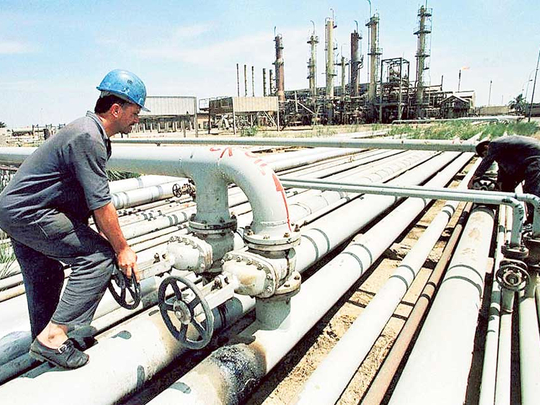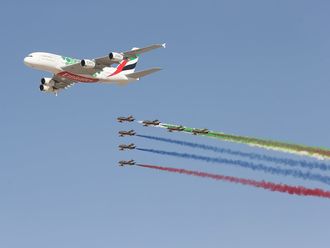
London: Gulf Keystone Petroleum Ltd, an oil producer focused on Iraq’s Kurdish region, said it is not willing to invest any more in its operations until the local government pays money owed for crude exports.
The company is “frustrated” that it can’t invest to expand the capacity of its Shaikan oilfield to 120,000 barrels a day from about 40,000 currently, said Gulf Keystone Chief Executive Officer Jon Ferrier. It will be unable to do so until the Kurdistan Regional Government pays the arrears for crude already shipped from the project, which remain in the “ballpark” of the $283 million (Dh1.04 billion) owed in August, he said.
“Until we address the arrears, I’m not prepared to invest,” Ferrier said in an interview in London Thursday. “We can’t survive without payments, nobody can.”
Shares of Gulf Keystone, along with other explorers that operate in the region such as Genel Energy Plc and DNO ASA, slumped this year. The KRG was unable to pay the companies for exports as the cost of battling Islamic State, the drop in crude prices and a dispute over revenue sharing with Iraq’s federal government diminished state funds. While payments resumed in September after a hiatus of eight months, the transfers aren’t sufficient to clear the arrears, according to DNO.
Monthly payments
Iraq’s Kurdistan region exported 595,528 barrels a day in October, according to the Kurdish Ministry of Natural Resources. That’s 22 per cent of total Iraqi exports last month.
So far, Gulf Keystone has received $24 million from two monthly payments. “We have to remain confident that payments will come,” but cannot be sure of the timing or quantity of future transfers, Ferrier said. Gulf Keystone has yet to receive a payment for November, he said.
Debt levels at Gulf Keystone and its peers have been under scrutiny by investors and analysts alike since the plunge in crude prices. The company should be able to make a bond coupon repayment of $26 million due in April without issues, provided it continues to receive regular payments from the KRG, Ferrier said.
Debt challenge
A bigger challenge will come in 2017, when Gulf Keystone will have to repay two bonds of $325 million and $250 million each.
“Just to carry on with the status quo from now until then isn’t good enough,” Ferrier said. “We know that we have to address the debt on the balance sheet,” he said, describing it as a “sensitive” issue.
One way to address these concerns would be to conclude the strategic review Gulf Keystone launched in February, which could result in the sale of the company. That process continues, but mergers and acquisitions are “tricky” in the current market because buyers and sellers disagree on the outlook for oil prices, Ferrier said.
Ferrier said he would prefer to find a partner to buy a share in its oil assets rather than an outright sale, but he’ll bring to the board whatever “sensible” offer he gets. The review should come to a conclusion because such a process can be a distraction for the “best people” in the company.












